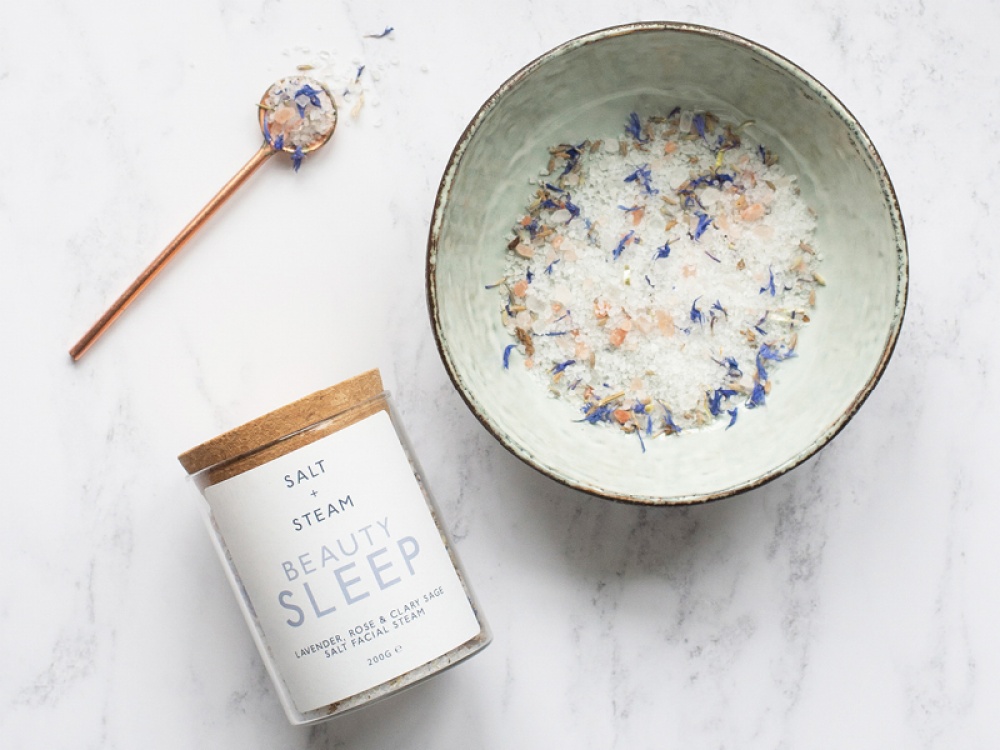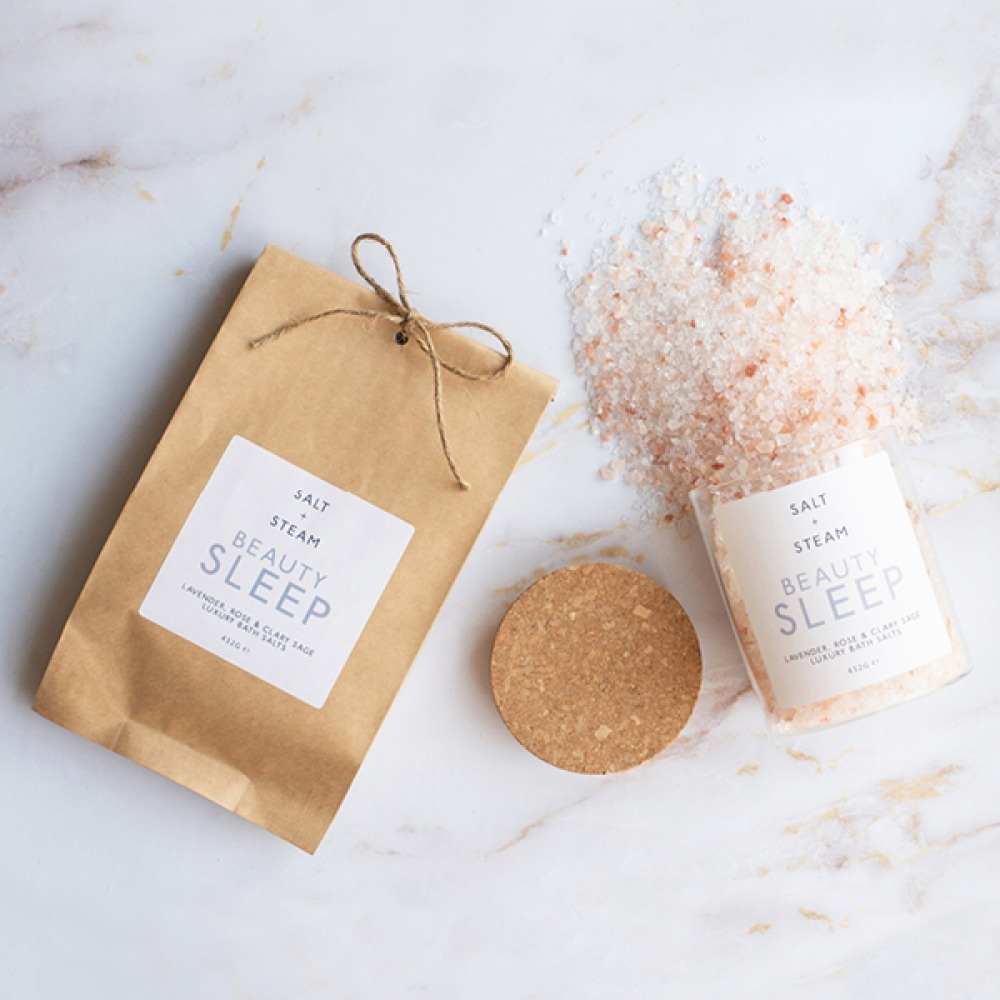Discover How Yorkshire-Based Salt + Steam are Striving for Sustainability

Based near York, Salt + Steam is a sustainable beauty company whose plant-based products are all responsibly handmade using cruelty-free and traceable ingredients

Back in October 2020, Lily Hartley decided to launch her own ethical and sustainable beauty business, Salt + Steam, after becoming repeatedly frustrated with the lack of products on the shelves which weren’t only cruelty-free, but sustainable too. ‘I was really frustrated with not being able to find the kind of products I was looking for, everything seemed to be in plastic packaging and ingredients included unnecessary chemical preservatives. I thought, there must be others like me who are searching for a product which have all these elements, but I couldn’t find one, so I decided to create my own,’ she explains.
One of the main elements Lily wanted to carry throughout her brand was the sustainability aspect. ‘From the very start, sustainability has been at the heart of everything Salt + Steam do – it’s what the company was essentially formed around,’ she says. All the body scrubs, bath salts and face steams which Lily creates are made with natural ingredients and sustainably-sourced essential oils. ‘Our clay-bases and salts for our bath products are all created with natural ingredients and there are no preservatives added – you won’t find any chemicals on the label which you don’t understand or can’t pronounce,’ she adds.
Before she started Salt + Steam, Lily had no background in cosmetic manufacturing. ‘It was a real learning curve, but I decided I was going to take the time to do my research to ensure that I knew where our ingredients were coming from and how they were being processed. It was really important to me that the ingredients were going to be cruelty-free from start to finish because often you buy products without knowing the traceability,’ she says. Working with another local company who source sustainable ingredients from across the world, Lily has been able to find out (and tell her customers) where everything comes from and be totally transparent about her products.
Traceable and eco-friendly ingredients aren’t the only way Lily is pursuing sustainability within her business. Salt + Steam also have a no plastic packaging policy. In the UK alone, it’s estimated that five million tonnes of plastic is used every year, with nearly half of this used in packaging. ‘It was definitely hard at first trying to source effective, eco-friendly packaging but we have managed to find plastic alternatives. For example, our bath salts come in glass jars with cork lids, and we like to encourage our customers to reuse them if they can. We also offer refillable salts in compostable bags so if they want to, they can fill the jars up again. But, even if they don’t want to refill them with our bath salts, they make great storage jars for the bathroom or kitchen,’ she adds.

‘I was really frustrated with not being able to find the kind of products I was looking for, everything seemed to be in plastic packaging and ingredients included unnecessary chemical preservatives’
Typically, plastic waste ends up in landfills because it won’t decompose and this means plastic being found in our environment for centuries. ‘There is no plastic at all used in our products or packaging, everything is reusable or recyclable, or in the case of our refill bags, compostable. We do have a carbon footprint but we’re a small business so our carbon footprint isn’t huge, but from the start we’ve worked really hard to make sure we weren’t going to make a big impact,’ Lily explains. Salt + Steam also partnered with a company, called One Tree Planted, who plant trees around the world to try and offset their carbon emissions. ‘I think any kind of shop or business who is in ecommerce or delivering products is going to contribute to carbon emissions somehow, but I really wanted to ensure we offset that as best we can from an early stage,’ she adds.
‘It can feel really daunting trying to be more sustainable, and it often feels like there is a lot of pressure to focus on sustainability – you can feel like you’re not doing enough or what you’re doing isn’t right,’ Lily tells us. ‘However, I think that any little changes can really make a difference. If you can even make one or two sustainable swaps in your business that’s great, and if you can swap everything out whether that be items, products or packaging then even better, but I think it’s okay to take it one step at a time. It’s too hard to do it all at once.’







